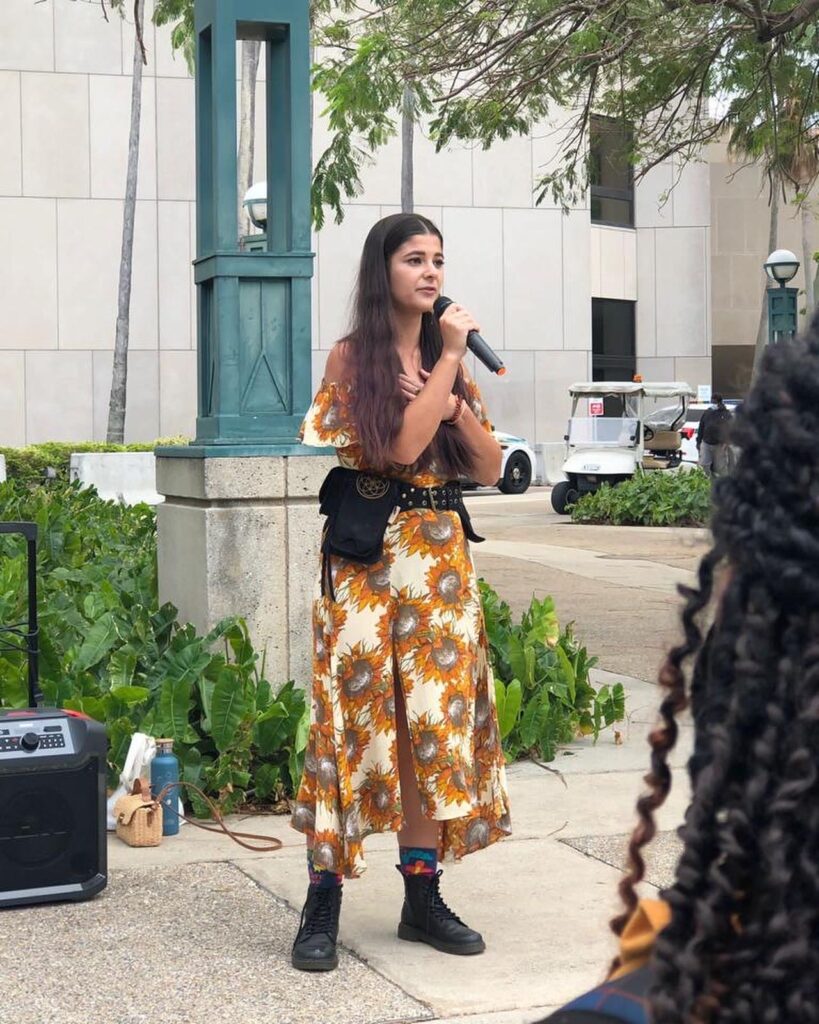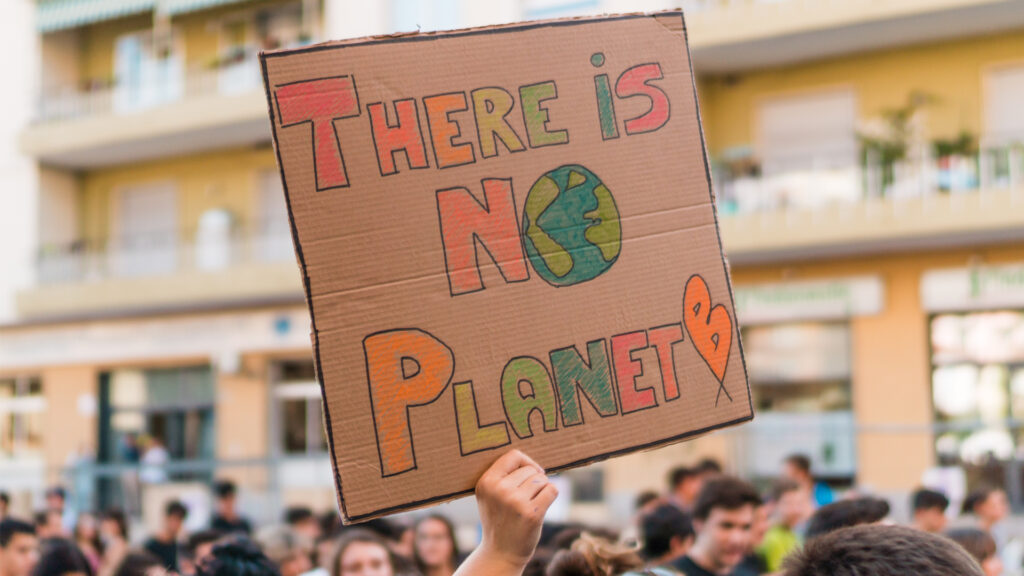The following Q&A is conducted with Alika Esperson, advocacy and campaigns associate for the CLEO Institute. The CLEO Institute is a non-profit organization that educates and empowers the communities of South Florida to demand climate action. This interview has been edited for length and clarity.
What motivated you to work on climate issues in the first place?

I thoroughly believed that science could help the make the world a better place. I graduated high school, bright-eyed and bushy-tailed, and wanted to pursue a career in chemistry. Between my community college experience and going to FIU for sustainability, I took a gap year. In that year, I realized that climate change is a really important issue and there was a lot of science on it, but for some reason we weren’t really acting on it.
I realized that (while) I might understand the science and want to (act), it wasn’t enough for a lot of other people and there still wasn’t a lot of engagement happening. I decided to switch gears to sustainability, and it was the best decision I could make. I feel really passion-driven and I feel like it is the biggest issue that we’re dealing with. It affects everyone even if everyone doesn’t realize it yet.
So specifically, how does your position and work impact these issues?
CLEO focuses specifically on climate policy and education. This is a systematic issue, so while individual actions are wonderful and we do encourage them, we really do focus on systematic change, policy change, holding corporations accountable and the giants like FPL and our politicians that are making the laws that affect citizens every day.
Where you’re based right now in Florida, what would you say is a major challenge from climate change you see?
I do live in Miami, (which) is ground zero for climate change. We experience everything from extreme heat to flooding to seeing the effects of rising sea levels. This unfortunately affects marginalized communities disproportionately.
Rising sea levels is the one many people are really familiar with, but extreme heat gets sort of brushed under the rug. There’s a lot of statistics about extreme heat in Miami that the days above 90 (degrees) have significantly increased throughout the years, and it’s a change that we have many people have been able to observe even in their lifetime living in Miami.
How do you think that that problem is being handled on the local scale?
I think there is a plan in place, and there is a lot of focus on adaptation. However, I think there could be more work done on mitigation in that conversation isn’t being brought up enough in Miami. I think the issue altogether could be upheld more and more can be done within our commission with our commissioners and people in power that hold power on a city-wide level in Miami.
Taking that idea … from Miami to the whole state of Florida, what do you think the most effective measure the state of Florida could take to address climate change?
I think encouraging the shift to renewables would be the biggest thing that Florida could do. Incentivizing solar, specifically for communities that would struggle to get solar in the first place (like if you’re renting). That is something I would like to see in the next, hopefully, 10 years. I don’t own a home, so I’m in that boat of “I want to get into that” and they don’t make it easy. It’s such an obvious thing and it’s crazy that we don’t have it for the Sunshine State after all.
Is there something that you’re seeing being done right now about climate change that might be going unnoticed?
What comes to mind is really the Inflation Reduction Act and its effect on a federal level, that gives me a lot of hope. Even though I do feel like it doesn’t go far enough in some ways.
In my free time I like to go on TikTok and there’s this one user that likes to talk about good news globally that’s happening, not only in climate change but with other environmental issues. That gives me hope and I do think that optimism plays a really big role in keeping people engaged because burnout is real in this field. That’s what I turn to when I’m feeling things like eco-anxiety or eco-grief.
How do you think that climate change will affect our future generations?
We can talk about future generations, but I’m in the boat that climate change is already here. We’re already experiencing these things, specifically in Miami. We’ve had rain bomb events where Fort Lauderdale Airport was shut down … I think it’s important to push the fact that this is already happening, it’s already here, and it’s going to get worse. We need a push. Every small action can ripple out into a big action and every single fraction of a degree can make an impact.
What do you think the average person can do about climate change?

The most important thing you can do, I believe, is vote. A big thing that CLEO is really working on right now is the climate voter program, which is going to encourage young people to show up to the polls. A statistic I want to call on is that only 22% of eligible voters between the ages of 18 and 29 voted in the 2022 election. We could have such a big impact if we can increase young voter turnout.
The second thing is to organize. I think that individual action is really wonderful, and I’m not going to shame anyone for wanting to align their ethics with their daily habits. However, organizing is one of the most powerful things we can do to combat the systems that are in place that cause issues like climate change in the first place.
(CLEO has) plenty of opportunities for, young people to join the movement. If you just visit our website, we have things from internships, volunteer opportunities, and action alerts. If you’re really having a tough day and you want to take action now, we’re always going to have a petition there for you or an opportunity to call an elected official.
I just want to reiterate and end this on a good note to say that solutions are out there and there is hope. You can’t bypass the feelings of sadness that comes with this movement; however, I do think that moving from a place of love for the planet is a really effective way to keep moving forward.
This Q&A was conducted by Paris Santiago, a graduate research assistant at Florida Atlantic University who is pursuing a master’s degree in the environmental science program. She has worked as a research assistant for FAU’s Center for Environmental Studies since 2022. The center manages and funds The Invading Sea.
Sign up for The Invading Sea newsletter by visiting here. If you are interested in submitting an opinion piece to The Invading Sea, email Editor Nathan Crabbe at ncrabbe@fau.edu.




http://www.fossilfueltreaty.org describes what I believe is a strong weapon on the climate catastrophe – I don’t see Miami on the list of endorsing cities – I’M WORKING ON CHICAGO – TAKE ACTION